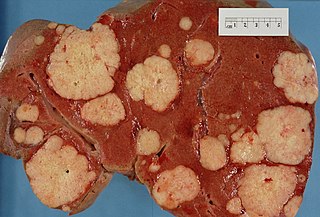Murder is unjustly causing the death of a human being.
That's homicide. Murder is the intentional and malicious killing of a legal person.
1. Your assumption that an unborn fetus has no desire to do anything has no basis.
Much like your assumption to the contrary. We get to be baseless assumption buddies; yay!
2. I did not justify abortion for I do not consider a fetus to be part of a woman's body.
What you do or do not consider the fetus a part of is irrelevant. The fetus is IN a woman's body, it parasitizes her body's nutrients, expands the abdominal area, strains surrounding tissue and muscle, and triggers morning sickness and immunosuppression.
Abortion is discrimination against a human being.
No, it isn't.
That child is a living being, because it has all the essential functions of a life-form. You forget that you too are made up of cells, and if your cells (which you do not consider alive) were systimatically killed, you would cease to be.
1 False equivalence.
2 I have
never claimed that the cells of my body aren't alive. Don't misattribute me.
3

Here we have a cross section of someone's liver. The pale blotches are tumors made of human pancreatic cells. These cells are living beings, because they have all the essential functions of a life-form. Furthermore, you cannot prove that they are not fully conscious, having their own feelings and desires. Therefore, destroying them would be unjust, discriminatory, and, dare I say,
MURDER.
4 Seriously, what child?
No, it does not end there. I consider every abortion to be a murder, and as such, every mother who aborts her child is liable in a court of law.
1 Not all abortions are intentional.
2 You can consider that all you like. The fact remains that it isn't true.
A fetus is a baby.
No, it isn't.
If we begin to define a person according to our own standards, then we get into dangerous territory.
Yet, you're
already defining personhood according to your own standards by declaring every human fetus to be a fully conscious baby with human rights.
Besides, what do you have that a unborn baby does not?
Really? If we assume that you're trying to refer to a fetus that can be legally aborted:
Functional senses, intellect, memories, personality, responsibilities and obligations, relationships, goals and ambitions, and legal personhood are all pretty much guaranteed.
BUT both are the same object.
No, they aren't. That's an obvious false equivalence.
Babies have brains too, [...]
Yes, babies do, in fact, have brains. Blastulai don't.
[...] and what is a brain besides a mass of cells?
Quite a bit, as you well know. Another false equivalence.
An unborn baby is conscious and can think, can feel, and can move.
1 No, it isn't.
2 So? You're straying off topic again.
A brain remains a mass of cells that computes concepts by electrical impulses carried by a nervous network.
Whereas a blastula does not.
That made me laugh. ROFL+
Way to be subtle, Mr. Ad Hominem.
Bravo! Thanks, @Moegreche, you really hit it on the head.
... You do know he was asking a question, right?
But after "development," the same matter remains, yet you now call it a person. No new matter (new in the sense that it was not previously present) is added, but more of pre-existing matter; yet that somehow imbues it with personhood, in your opinion.
Well, no. It's an aggregate made almost entirely of new matter that has been built up through the original matter and differentiated into distinct tissues with specialized functions.
Possession of physical attributes or lack thereof does not constitute personhood. Some persons posess less of those attributes than animals, yet they remain persons and animals do not. Personhood remains the quality of being conscious, which expounds upon the fundamental superiority of humankind over animals.
Uh, no.
1 Humans
are animals.
2 Consciousness is not intrinsic to all humans.
3 Consciousness is in no way unique to humans. At all.
4 Humankind has
no superiority over any other animal.
As a Catholic, the answer is simple. A person is one created in the Image and Likeness of God: one who posesses a soul. A soul is created at conception.
1 Why? What reason is there for a soul to be created at that particular time?
2 Unlike with fetal development, the matter present right after conception is the same matter that was introduced just before conception. No new material is added by this process. If we hold to your earlier reasoning, we may as well declare the egg and sperm cells human beings.
Abortion, however, remains the murder of a baby.
1 No, because it never was.
2
Proof by assertion.
@Moegreche
Higher brain function would exclude infants from counting as persons (severely mentally handicapped people might also fail this criterion). So it must be something else.
This looks like a moralistic fallacy to me. What you are saying appears to be that these criteria
can't be what defines personhood because these individuals
shouldn't be excluded from personhood.
@HahiHa
On one hand, I agree that setting the limit at birth makes no sense, because age at birth is highly variable and this would basically reduce the decision to "is it inside the mother or not".
Whereas I disagree, as full sensory development is initiated immediately at birth. At any time before this, there is nothing to learn, perceive, or be cognizant of.